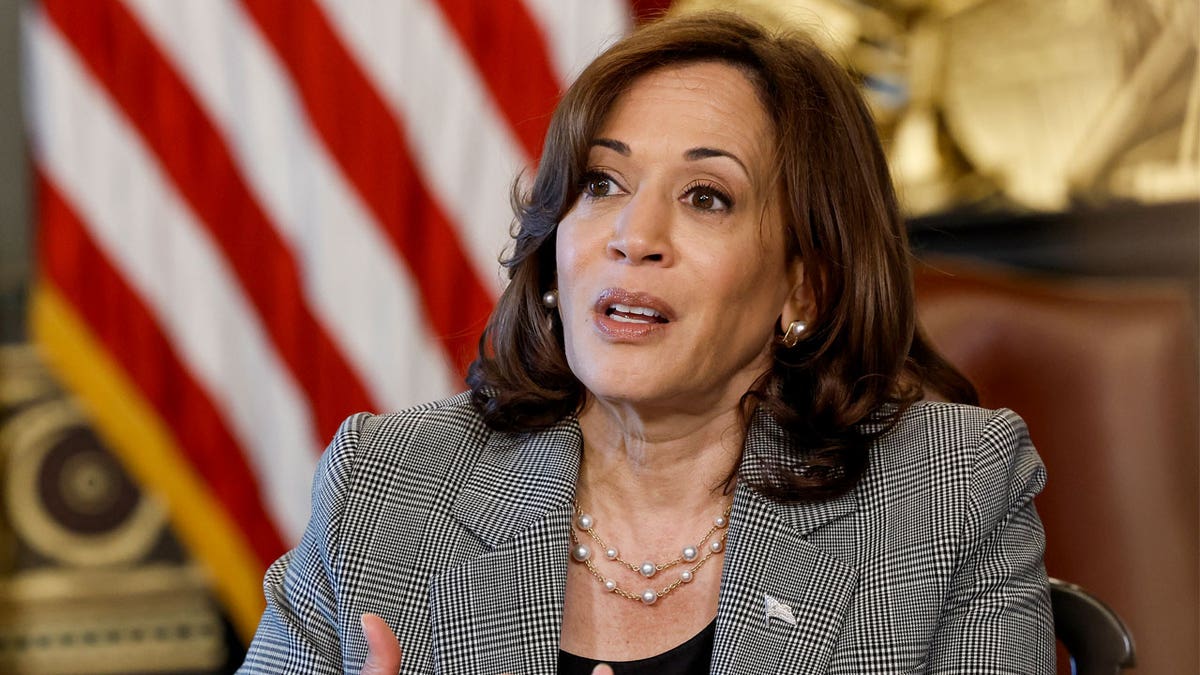When Kamala Harris emerged as a prominent figure on the global stage, discussions about her personal life, including her alleged drinking problem, became a focal point for media and public discourse. The topic of Kamala Harris' drinking habits has been a subject of debate and speculation, often overshadowing her significant contributions as a public servant. This article aims to explore this issue in depth, separating fact from fiction while maintaining a respectful and informative tone.
Kamala Harris, the first female Vice President of the United States, has always been under scrutiny due to her high-profile position. Media outlets have frequently highlighted various aspects of her personal life, with her alleged drinking problem being one of the more contentious topics. It is essential to approach this subject with sensitivity, ensuring that the narrative is based on factual evidence rather than mere speculation.
This article will delve into the origins of these claims, analyze credible sources, and provide a balanced perspective on Kamala Harris' alleged drinking problem. By doing so, we aim to foster a better understanding of the issue while appreciating Kamala Harris' achievements and contributions to public service.
Read also:East Park Cinema The Ultimate Destination For Movie Enthusiasts
Table of Contents
- Biography of Kamala Harris
- Origins of the Drinking Problem Claims
- Facts vs. Myths
- Impact on Public Image
- Official Statements and Responses
- Mental Health and Substance Use
- Understanding Alcohol Consumption
- Health Considerations and Risks
- Importance of Support Systems
- Conclusion
Biography of Kamala Harris
Kamala Devi Harris was born on October 20, 1964, in Oakland, California. She has achieved numerous milestones throughout her career, becoming the first female, first Black, and first South Asian Vice President of the United States. Her journey in public service began as a prosecutor in San Francisco, eventually leading her to serve as California's Attorney General and later as a U.S. Senator.
Key Facts About Kamala Harris
| Full Name | Kamala Devi Harris |
|---|---|
| Date of Birth | October 20, 1964 |
| Place of Birth | Oakland, California |
| Profession | Vice President of the United States |
| Political Party | Democratic Party |
Origins of the Drinking Problem Claims
The allegations regarding Kamala Harris' drinking problem gained traction during her time as a candidate for the Democratic presidential nomination in 2020. Critics and political opponents seized on isolated incidents to paint a misleading picture of her behavior. However, it is crucial to examine the origins of these claims and the context in which they emerged.
Some media outlets reported instances where Kamala Harris appeared to be under the influence of alcohol, but these reports lacked substantial evidence. The lack of credible sources and verifiable data raises questions about the validity of these claims.
Media Influence and Misinformation
The role of media in shaping public perception cannot be overstated. Sensationalized headlines and speculative reporting often contribute to the spread of misinformation. In Kamala Harris' case, the media played a significant role in amplifying unfounded claims about her drinking habits.
Facts vs. Myths
Separating facts from myths is essential when addressing sensitive topics like Kamala Harris' alleged drinking problem. Below are some key points to consider:
- Facts: Kamala Harris has acknowledged enjoying an occasional drink in social settings. This is not uncommon among public figures and does not necessarily indicate a problem.
- Myths: Claims that Kamala Harris has a severe drinking problem are largely unsubstantiated and lack credible evidence.
It is important to approach such discussions with a critical mindset, ensuring that information is grounded in facts rather than speculation.
Read also:Jack Orsquolantern World The Enchanting Global Celebration Of Carved Pumpkins
Impact on Public Image
The allegations surrounding Kamala Harris' drinking problem have had a significant impact on her public image. Critics argue that such claims undermine her credibility and distract from her accomplishments as a public servant. On the other hand, supporters emphasize the importance of focusing on her policy achievements and leadership qualities.
Addressing Public Perception
Public perception can be influenced by a variety of factors, including media coverage and political bias. Kamala Harris and her team have worked to address these perceptions by highlighting her strengths and accomplishments. This approach aims to shift the narrative away from unfounded claims and towards a more balanced view of her capabilities.
Official Statements and Responses
Kamala Harris and her representatives have issued official statements addressing the allegations regarding her drinking habits. These statements emphasize her commitment to transparency and accountability while dismissing unsubstantiated claims.
Key Points from Official Statements
- Kamala Harris enjoys an occasional drink in social settings, which is a normal part of adult life.
- Claims of a drinking problem are baseless and lack credible evidence.
- The focus should remain on her achievements and contributions to public service.
Mental Health and Substance Use
Discussing Kamala Harris' alleged drinking problem provides an opportunity to explore broader issues related to mental health and substance use. It is important to recognize the stigma surrounding these topics and work towards fostering a more supportive environment for individuals seeking help.
Breaking the Stigma
Mental health and substance use disorders affect millions of people worldwide. By addressing these issues openly and compassionately, we can help reduce the stigma associated with seeking treatment. Kamala Harris' position as a public figure offers a unique platform to promote awareness and understanding of these challenges.
Understanding Alcohol Consumption
Alcohol consumption is a complex issue with cultural, social, and individual factors influencing behavior. It is essential to differentiate between moderate alcohol use and problematic drinking patterns. Kamala Harris' occasional enjoyment of alcohol does not necessarily indicate a drinking problem.
Guidelines for Responsible Drinking
- Limit alcohol consumption to moderate levels, as defined by health guidelines.
- Be aware of personal limits and avoid excessive drinking.
- Seek professional help if concerns about alcohol use arise.
Health Considerations and Risks
Excessive alcohol consumption poses significant health risks, including liver damage, cardiovascular issues, and mental health disorders. It is important to approach this topic with an understanding of the potential consequences and take proactive steps to mitigate risks.
Preventive Measures
- Engage in regular health check-ups to monitor alcohol-related health risks.
- Adopt a balanced lifestyle that includes exercise, proper nutrition, and stress management.
- Seek support from friends, family, or professionals if needed.
Importance of Support Systems
Having a strong support system is crucial for maintaining mental and physical well-being. Kamala Harris, like many public figures, relies on a network of family, friends, and colleagues to navigate the challenges of her role. This support system plays a vital role in ensuring her overall health and well-being.
Building a Supportive Environment
Creating a supportive environment involves fostering open communication, empathy, and understanding. Encouraging individuals to seek help when needed and providing resources for mental health and substance use disorders can make a significant difference in their lives.
Conclusion
In conclusion, the allegations surrounding Kamala Harris' drinking problem are largely unfounded and lack credible evidence. By examining the origins of these claims, separating facts from myths, and addressing public perception, we can foster a more balanced and informed view of this issue. Kamala Harris' contributions to public service and her commitment to transparency deserve recognition and appreciation.
We invite readers to engage in thoughtful discussions about this topic, share their insights, and explore other articles on our site. Together, we can promote a culture of understanding and support for all individuals, regardless of their circumstances.



